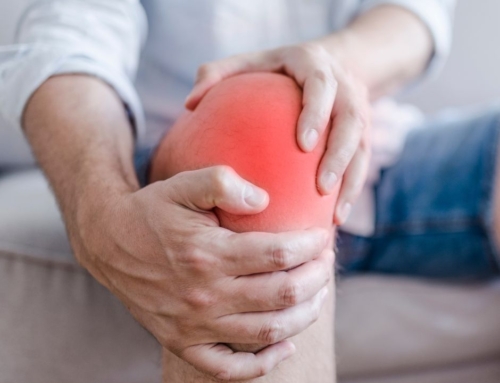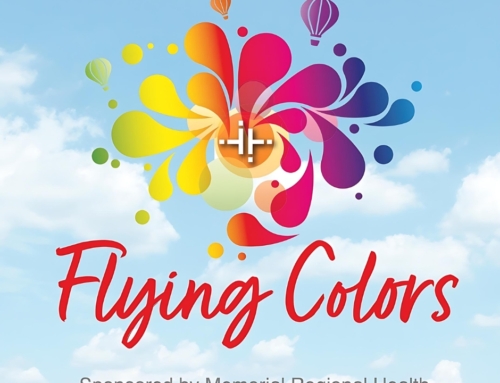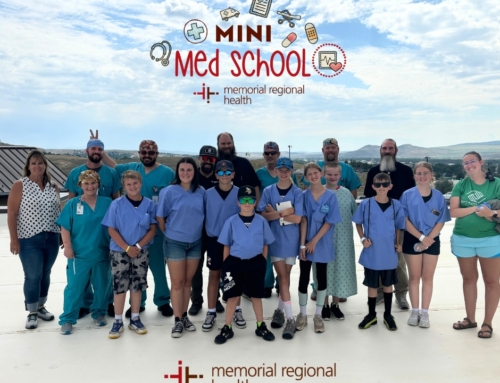Do You Have Pain? Innovative Pain-Management Techniques at Memorial Regional Health
Don’t miss any updates when you sign up for our Living Well e-newsletter here.
Many people don’t realize that pain management is a medical specialty all its own, with techniques you’ve probably never heard of.
Your primary-care or specialist provider may treat you for pain associated with a certain condition. Often this level of pain management is short-term and aligned with simultaneously resolving a physical illness or injury.
But pain that continues beyond the physical treatment timeline or isn’t being adequately relieved by common methods is a good candidate for assessment by providers who specialize in pain management. Their expertise can result in significant, lasting pain relief.
Pain-Management Techniques at MRH
At Memorial Regional Health, Trey Gorham, a Certified Registered Nurse Anesthetist, heads up the pain-management program. He recently completed a Pain Fellowship program at the University of South Florida and did his hands-on training for that certification at Metamorphosis Pain Clinic in Cañon City and Colorado Springs.
“Pain decreases quality of life,” said Gorham. “If pain isn’t controlled, it can lead to depression, weight gain, loss of energy and the inability to do things you enjoy.”
To assess pain type and levels, Gorham steps a new patient through a comprehensive physical exam, health questionnaire, radiological imaging and “a lot of detective work.” Many times, he said, there is more than one factor causing the pain, and the treatment plan needs to take everything into account.
Pain treatment can include medication, interventional procedures, physical therapy, weight loss, acupuncture, massage therapy, chiropractic therapy and/or cognitive therapy. “Most pain has multiple causes and requires a plan from all angles,” Gorham said. “It’s much more than prescribing pain pills. In fact, all types of prescription pain medications have side effects. I prefer using interventional techniques first when possible.”
Gorham has practiced anesthesia at MRH for six years and has been part of the pain management team for a year. He said that the main issues he sees in patients are pain in the low back or peripheral joints, such as knees and shoulders.
Simple steroid injections into joints or muscles can often temporarily relieve these types of pain, Gorham said. But other pain-management techniques are also available and can sometimes deliver longer-lasting results. Here’s a rundown of some of the newer techniques available at MRH.
• Platelet-Rich Plasma Injections
For this treatment, one or several tubes of a patient’s own blood is drawn and then spun in a centrifuge to isolate the blood platelets. These platelets are then injected into the connective tissue causing the pain. “PRP works similarly to steroid injections,” said Gorham. “It relieves the pain, but PRP may also help repair damaged tissue such as cartilage. So it adds another dimension to the treatment.”
• Radiofrequency Ablation
RFA uses radio waves to heat a precise nerve area that is causing pain. It can offer long-term relief for conditions such as osteoarthritis of the hip, back or knee. “It temporarily disables the sensory nerves in a problem area so you stop sensing the pain there,” Gorham said. “It often lasts about a year and can be repeated. In this way some patients can delay surgery or gain time to work on other factors, such as weight loss. RFA can also be effective for residual pain after recovery from total joint replacement.”
• Stellate Ganglion Blocks
The stellate ganglion nerves are located in your neck, on either side of your voice box. They control your sympathetic nervous system, which is in charge of your body’s fight-or-flight system. For this treatment, anesthetic medication is injected into the stellate ganglion under ultrasound guidance.
“SGBs are widely used to treat chronic pain,” Gorham said. “We’re finding that it’s a very beneficial treatment for people suffering from long COVID symptoms such as chronic fatigue, brain fog, loss of taste and smell, and cardiac arrythmias. It is certainly not a cure, but it has shown promising results for long COVID symptom relief.”
Stay tuned for more pain-management services to become available in Craig. “The MRH pain-management program is top-notch,” Gorham said. “We offer a lot of treatment types that are typically not found in rural health centers. We’re also planning to add additional treatment modalities. Pain management is a critical service line for many of our community members. We’re just starting to scratch the surface.”
Appointment can be made without a provider referral by calling 970-826-2400.






